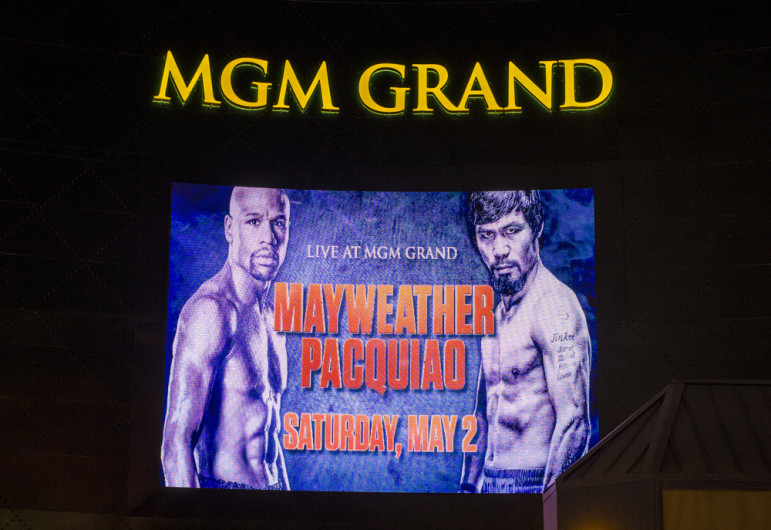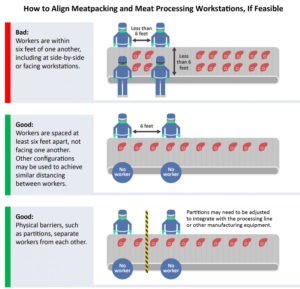
September 17, 2015; Boxing Scene
Last week, the NPQ Newswire discussed an article in SB Nation by Thomas Hauser, an award-winning boxing reporter, that took the nonprofit United States Anti-Doping Agency to task for its role in reviewing and approving an IV infusion for Floyd Mayweather prior to his May 2nd bout against Manny Pacquaio. In an unusual move, the USADA has issued a 25-page, 60-point, almost paragraph-by-paragraph critique of the Hauser article.
The USADA press release summarizes the organization’s objections to Hauser’s investigation:
- That Mayweather had applied for and was granted a Therapeutic Use Exemption for the IV and therefore wasn’t in violation of anti-doping rules
- That a USADA doping control officer was in Mayweather’s home and “observed Mr. Mayweather’s condition that precipitated the need for an IV…and remained in the home while the paramedic provided the IV,” and during the procedure indicated that Mayweather did not try to hide anything about the treatment
- That Pacquiao was “notified of the IV in May as soon as a TUE was approved”
- That the Nevada State Athletic Commission, which was also notified of the TUE, has affirmed that “Mayweather has done nothing wrong” and that the “commission has no interest in any type of investigation regarding his IV”
- That the USADA, contrary to Hauser’s contention, does use the more expensive Carbon Isotope Ratio testing for PEDs and did so on 22 urine samples collected from Mayweather and Pacquaio
Not surprisingly, Hauser responded quickly to the USADA statement, though with a relatively short statement, promising a longer article response in the future. (Both Hauser and the USADA sent their statements directly to NPQ.) Like the USADA press release, the Hauser statement was published on BoxingScene.com.
Hauser’s short-form response to the USADA long-form critique centers on the following: He cites Jeff Novitsky, the federal investigator who is renowned for his investigations of performance-enhancing drug use by Lance Armstrong, Marion Jones, Roger Clemens, and Jose Canseco, among others, for a different interpretation of problems with taking a pre-fight intravenous injection for dehydration, which is the reason that Mayweather’s people said he needed the IV.
In cycling…they were using IVs of saline solution to manipulate their blood level readings, which were being used to determine if they were blood doping. It could also be used to flush a system. It dilutes blood and urine so that natural steroid profiles are very hard to read after you’ve taken an IV bag. That’s the primary reason. WADA also prohibits them for some health reasons. When an IV is administered, especially close to a competition, there’s a possibility of blowing out a vein or having clotting after the IV is taken out. There could be some issues with edema and swelling. If the idea is to rehydrate, it’s much safer to do it orally. Studies show that orally rehydrating is better for you if you’re mildly dehydrated. There’s two things that they show consistently. Number one, it’s obviously safer to put something through your mouth than put it in a needle in your vein. Number two, your perceived rate of exertion, how hard you feel you’re working after rehydrating orally, is less than if you rehydrate via IV. If you rehydrate orally properly, the next day you’re going to feel a whole lot better when you’re exerting yourself.
Sign up for our free newsletters
Subscribe to NPQ's newsletters to have our top stories delivered directly to your inbox.
By signing up, you agree to our privacy policy and terms of use, and to receive messages from NPQ and our partners.
According to Novitzky, that would deal with “mild dehydration.” If that were the case with Mayweather, Hauser suggests “the USADA doping control officer could have given him several glasses of water.” If he were suffering from serious dehydration, that would be something for a hospital to examine, and perhaps Mayweather would have been well-advised to pull out of the fight. Hauser adds, “USADA has yet to explain the medical justification and supporting data that led it to grant a retroactive therapeutic use exemption nineteen days after the fact for a procedure that’s on the World Anti-Doping Agency’s ‘Prohibited Substances and Methods List.’”
The part that stumps us, outside the realm of boxing as we are, as Hauser notes and the USADA says, is that “Mayweather applied for a retroactive therapeutic-use exemption and it was granted after the fight, which isn’t unusual or even required by the Nevada State Athletic Commission.” The IV was given a day before the fight, but apparently approved more than two weeks later.
NPQ is hardly about to get into the weeds of arcane boxing regulations, but the debate between the USADA and Hauser seems to be occurring on two levels: (1) whether what Mayweather did and the USADA approved was allowable under boxing rules; and (2) whether what they did was the right thing to do, regardless of whether it could be explained away as compliant with the rules. In the nonprofit sector, there are nonprofits that defend themselves from charges of misusing government or charitable funds by somehow showing that they didn’t violate the law or program regulations. That may work in the law and regs, but it sometimes doesn’t work in the court of public opinion if the public comes to believe that the expenditures were inappropriate or excessive. That is where the USADA has to make more of its case if it wants to fend off Hauser’s questions, that what it did or didn’t do was not only correct by the sometimes-porous rules of professional boxing, but also reasonable and appropriate on its own merit.
Moreover, unless we missed it, the USADA column of responses to Hauser’s article doesn’t once reference the organization’s relationship with Mayweather advisor Al Haymon, who plays a not-insignificant role in the Hauser story. Haymon, who is rarely if ever interviewed, has been roundly criticized for his roles in boxing (as a manager and a promoter) by the likes of sports commentator Max Kellerman, Oscar de la Hoya (whose Golden Boy Promotions has sued Haymon for alleged violations of the Muhammad Ali Boxing Reform Act), and others. As described in a story in Sports Illustrated, “An Al Haymon could exist only in a sport like boxing, an alternate universe with no barriers to entry, no national governing body, inconsistent regulations and a hustler’s spirit.”
Mayweather and Pacquiao ended in a loss for the Filipino senator-boxer, but the bout between the USADA and Thomas Hauser is only now entering the middle rounds. Fighting “off the ropes,” the USADA has unleashed a flurry of punches, but can it avoid Hauser’s haymakers?—Rick Cohen













